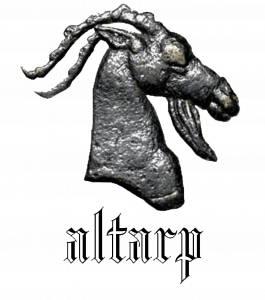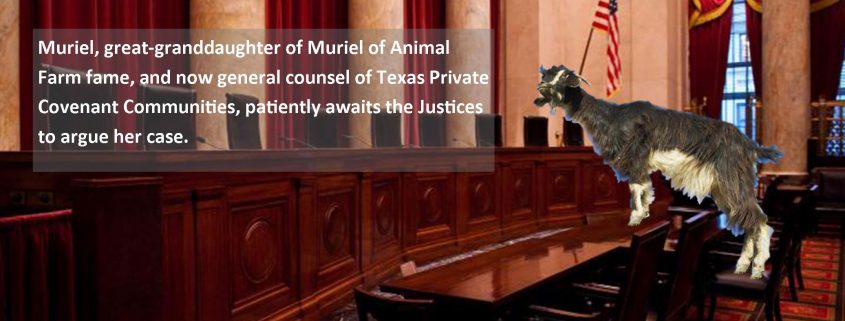The Supreme Court Keeps the Constitution Up-to-Date
Once again the Supreme Court has taken a step to keep the Constitution up-to-date.
On February 20, 2019, the Court unanimously ruled that the prohibition against excessive fines contained in the Eighth Amendment applies to state and local governments. The case was Timbs v. Indiana, 586 U.S. (2019) . The Court held that the Due Process Clause of the Fourteenth Amendment requires the states (and local governments) to observe the Eighth Amendment’s prohibition against excessive fines to the same extent that the Federal Government does.
Amendment 8
Excessive Bail, Fines, and Punishments ForbiddenExcessive bail shall not be required, nor excessive fines imposed, nor cruel and unusual punishments inflicted.
The simplicity of the individual amendments contained in the Bill of Rights gives courts wide latitude to interpret laws as the country grows and new laws adapt to ever changing conditions. Similarly as conditions change, some previous laws become obsolete and have to be discarded.
Nevertheless the fight for Liberty cannot be passively left to the courts and legislatures. Individuals have to be aggressively vocal in order to both restrain and compel our elected representatives. When representatives fail, the courts are often our last, albeit expensive, resort.
But it can be very expensive and difficult for individuals, and even many well-funded organizations, to compel or restrain their elected representatives. And when elected representatives create laws resulting in injustice, it is equally expensive and difficult to get the courts to overturn a law.
For Tyson Timbs in Indiana, the right combination of events combined to result in a favorable verdict from the Supreme Court.
Indiana is the only state that outsources prosecutions for civil forfeiture to independent law firms on a contingency basis. This creates a moral hazard for law firms to go after easy cases with potentially big payoffs when valuable property is seized. The triviality of Timbs’ case, his huge forfeiture, and the inherent injustice of Indiana law made for an attractive test case.
The Institute for Justice asked the Supreme Court to hear the case. Both the American Civil Liberties Union and the United States Chamber of Commerce filed friend of the court briefs supporting Timbs.
The verdict was unanimous with the liberal minority siding with the conservative majority.
Constant Fight
“The price of liberty is eternal vigilance” is a quote usually attributed to Thomas Jefferson. But as Anna Berkes at the Jefferson Foundation contends, “Everybody was saying it, but nobody knows who first said it.” As nice as it sounds, the phrase does not adequately express the cost of Liberty. More than just vigilance, the cost of Liberty is a constant fight.
The Constitution is a document that recognizes the natural tendency of people to try to dominate over others. It places restraint on governments that inevitably infringe on the rights of individuals but it does not totally prevent heavy handed regulation, excessive fines, or even cruel and unusual punishment. Unfortunately when unjust practices are put in place by government, it often takes a lot of time and expense to correct them. The fight against the excessive fines involved in civil forfeiture has lasted at least as long as the failed War on Drugs.
War on Drugs
High minded people elected to government service invent all kinds of programs and laws, purportedly to make the lives of citizens better. The War on Drugs was one such program. It is increasingly obvious that many of its provisions have failed. People were and still are being needlessly jailed for non-violent drug crimes. Lives are being ruined in the Land of Liberty while other nations whose constitutions do not explicitly guarantee such Liberties have dealt with the same problems in a more humane way, treating drug abuse as a public health problem rather than criminal activity.
The excessive fines involved in civil forfeiture were aimed at curbing the traffic in illegal drugs. One could argue convincingly that civil forfeiture made the police act in their own perceived self-interest instead of in the name of justice. Even after the State of New Mexico passed a state law limiting civil forfeiture, the City of Albuquerque continued to confiscate cars from innocent owners, not even the ones charged with a crime.
Eventually law enforcement will get the message now that the Supreme Court has spoken. Local jurisdictions will have to reassess their policies and inevitably seek new ways to finance their operations instead of claiming that assets seized in civil forfeiture saved the taxpayer money.
Civil Forfeiture is Still Legal
All the Supreme Court said in its ruling was that civil forfeiture could be unconstitutionally excessive depending on the circumstances. Property used to commit a crime can still be seized and the owner will have to fight in court to get it back. Sometimes proving the case against an individual is too difficult for a prosecutor, so the individual goes free while the property seized is forfeit or tied up in expensive court proceedings.
This list of state laws may not be totally up-to-date but it shows how entrenched civil forfeiture laws are in the United States: LIST HERE
Citizens Should Lobby Legislators to Reform Asset Forfeiture Laws
If you love the Rule of Law and revere the Constitution, you should inform yourself about the insidious nature of civil forfeiture laws. Such laws can make crooks out of otherwise honest police. It’s easy to rationalize that the seized property is saving the taxpayer money, or it is only hurting the bad guys.
The Founders were well aware of John Locke’s writings. Locke argued in his Two Treatises of Government that political society exists to protect “property”, which he defined as a person’s “life, liberty, and estate.” That is still the obligation of our governments, but lazy or uninformed citizes have allowed the creeping cancer of over-legislation to infringe on our Liberties and allow governments to over-reach.
Do you know that in many jurisdictions it is illegal to cut down a tree on your own property? It’s time to wake up and stop goofy self-serving do-gooders from achieving their Orwellian dream. Don’t be a sheep! “Four legs good, two legs better”
Useful Resources
We will occasionally add to these and perhaps take some down if they do something stupid.
The Drug Policy Alliance is an organization that is carrying on the fight to stop government from hurting the citizens from whom it constitutionally derives its power.
The Institute for Justice is an Arlington Virginia based non-profit organization whose tag line is “Litigating for Liberty.” They are worthy of your support.




Community Discussion
Be respectful, but please speak your mind! We want a healthy discussion. There are no right or wrong answers here.